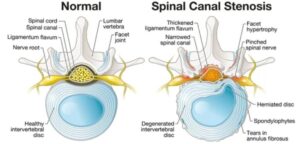In the fast-paced world we live in, it’s no surprise that occupational injuries are a common occurrence. While some injuries may seem minor at first, they can have significant long-term effects on an individual’s overall health and well-being. As chiropractors, we have had the opportunity to witness firsthand the impact of occupational injuries on many patients.
In this blog, we will explore the long-term effects of some of the most common occupational injuries. We will shed light on the importance of seeking early intervention and appropriate care.
Back and Neck Injuries
One of the most prevalent occupational injuries is back and neck injuries. These injuries often result from poor posture, heavy lifting, repetitive motions, or prolonged sitting. While immediate pain and discomfort are expected, the long-term effects can be far-reaching. Untreated or poorly managed back and neck injuries can lead to chronic pain, decreased mobility, muscle imbalances, and even nerve compression. Chiropractic care plays a crucial role in alleviating these symptoms, promoting proper spinal alignment, and restoring optimal function.
Repetitive Strain Injuries (RSI)
Repetitive strain injuries occur when repetitive motions or overuse of specific body parts cause damage to tendons, muscles, nerves, or joints. Common examples include carpal tunnel syndrome, tennis elbow, and tendinitis. If left unaddressed, RSIs can result in chronic pain, limited range of motion, muscle weakness, and decreased productivity. Chiropractic treatments, combined with ergonomic adjustments, exercise, and lifestyle modifications, can aid in pain relief, rehabilitation, and prevention of further complications.
Sprains and Strains
Sprains and strains are often encountered in physically demanding occupations or those involving manual labour. These injuries occur when ligaments (sprains) or muscles/tendons (strains) are stretched beyond their limits, leading to tissue damage. Inadequate healing and inadequate rehabilitation can result in chronic pain, joint instability, decreased functionality, and an increased risk of future injuries. Chiropractic care focuses on restoring joint mobility, strengthening surrounding muscles, and facilitating the body’s natural healing process, thereby reducing long-term implications.

Work-Related Stress
Occupational injuries are not limited to physical trauma; work-related stress can also take a toll on an individual’s health. High levels of stress can contribute to headaches, fatigue, muscle tension, and even mental health issues such as anxiety and depression. Chiropractic care takes a holistic approach, addressing the physical and emotional aspects of stress. Through spinal adjustments, relaxation techniques, and lifestyle counselling, chiropractors can help patients manage stress and enhance their overall well-being.
Occupational injuries, whether physical or psychological, can have profound long-term effects on an individual’s health and quality of life. Seeking prompt and appropriate care from a chiropractor can make a significant difference in preventing chronic pain, promoting proper healing, and restoring optimal functionality. By addressing the root cause of the injury and providing personalised treatment plans, chiropractors play a vital role in helping patients recover from occupational injuries and improve their overall well-being. Remember, taking care of your health today is an investment in a healthier future.





